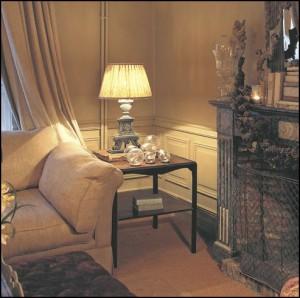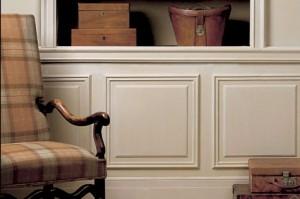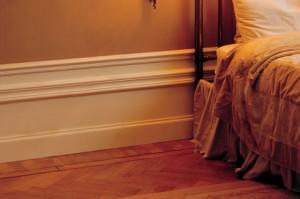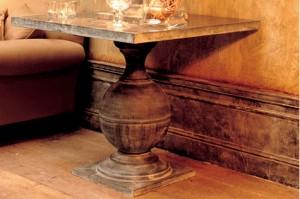Creating a Victorian Style in Your Home
7th March 2013Hallmarks of Victorian Style
When you think of Victorian style, it immediately conjures up images of a grand, elaborate décor filled with pattern, colour and decoration. The Victorian era is categorised as between 1837 & 1901 during the reign of Queen Victoria. Design at this time was inspired by nature and geometry, with the wealthy using style in their homes to flaunt their wealth.

Use of Colour
Colour was used to show the importance of a room, with darker and richer shades present in the library or parlour. As time progressed Victorian-style changed, with these darker tones becoming more prevalent throughout the home, often due to the damaging effect of pollution in the cities.
The colours most used in Victorian design were tertiary colours, which are made by mixing equal amounts of the primary and secondary colours. So if you’re aiming for a Victorian look in your home, choose warm and subdued tones such as mahogany brown, burgundy, plum, mustard yellow, gold, sage, olive green and lavender.
During the Victorian era all colours were produced from the organic pigments that were available at the time, so considering the limitations there was a surprising variety of colour. Some paint companies claim to offer classic Victorian paint shades, which can give a good impression although if you’re after a more authentic look, there are some specialists who supply paint made from traditional organic materials.
Pattern
Nearly every surface in the Victorian home was covered in patterns, in particular complex decoration with flora and fauna proving a popular theme for wallpapers, fabrics and rugs. Geometric patterns and stripes also play a big part in creating an authentic Victorian style. This love of pattern was continued onto furniture, ornaments, wall mouldings and ceiling decoration.
Walls were decorated with prints, dado rails and wall panelling. Cornice was an incredibly popular feature of Victorian homes, Victorian style cornice being easily recognisable by its many ridges, curves and deep inner cove with a shallow depth and long projection onto the ceiling.

Getting the Victorian Look in Your Home
As mentioned Victorian design is synonymous with decadence and class, so adding a touch of Victorian style to your home will add value to any room. Victorian influenced furnishings, wallpapers and fabrics are widely available from wholesalers and dealers, and there is a variety on offer to suit different budgets.
If you’re looking to easily add a period feature to your home, traditional decorative coving & cornice is perfect for adding a subtle hint of Victorian style. To take it another step further you can add ceiling roses, domes and tiling for brightening up your light fitting or adding interest to your ceiling. High skirting boards were also a feature and this effect can be achieved with just a standard height skirting, and then adding a dado panel rail 10-15 cm’s above and painting the whole area a different colour to the rest of the wall (see image) to give that grander result.

High skirting board effect

Creating the illusion of a high Victorian style skirting board
Whether you are looking to transform your home into a complete Victorian dream house or just want a few elements to get a traditional period look, there are a wide variety of options that will give your home that authentic style and elegance.
(c) Davuka GRP Ltd (March 2013)
